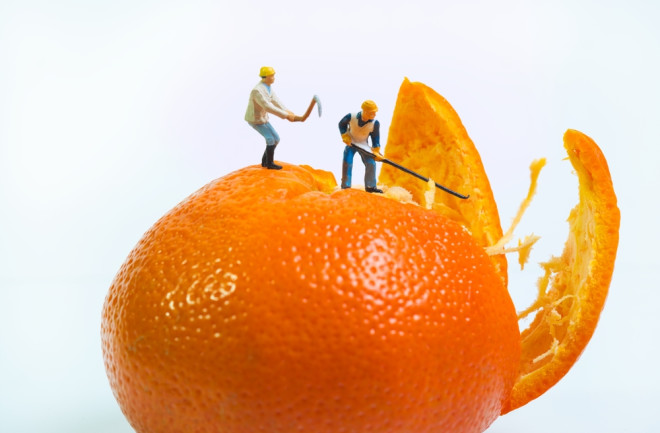There are more microbes (roughly 38 trillion) in your body than human cells (about 30 trillion). And the particular makeup of your personal microbial community, known as the microbiome, is important to your overall health. With every bite you eat, you’re feeding the tiny critters that make up your gut’s microbiome.
A healthy microbiome can protect against metabolic disorders and inflammatory bowel disease, according to Chris Damman, a University of Washington School of Medicine gastroenterologist, who spent the last 20 years studying the microbiome and its effects on health. Through research at the Bill & Melinda Gates Foundation that developed therapies for malnutrition, Damman discovered what the critters in our guts need to keep us healthy.
And he’s not happy with the state of our nutrition. It’s far less than optimal, he says, precisely because we’ve limited our focus to the macro- and micro-nutrients our bodies need, but ignored the needs of this unseen community within.
Tiny Workers
The community of microbes in your intestines could compare to citizens in a big, diverse city. A network of workers that do important jobs to keep the body, like a big metropolis, running smoothly.
These workers are highly interconnected, and when they’re able to do their jobs properly, they provide our internal city with the things it needs to thrive: transportation (musculoskeletal system), communication (the nervous system), infrastructure and goods (the endocrine system), diplomacy and defense (the immune system), and so on, explains Damman. In any city, there are some bad players, but in a healthy body, things generally stay in balance. The good guys do their jobs and the bad guys are, for the most part, kept in check.
Maintaining that balance is crucial, because those microbes do some important work. They create essential vitamins and proteins. They break down toxins. And they play an important role in the immune system. Well-fed gut microbes also take up room that dangerous bacteria might otherwise occupy, such as bad strains of E. coli.
Damman’s research shows that a poorly regulated microbiome can contribute to inflammatory bowel disease and diabetes. Researchers have even connected mental health disorders to the wrong balance of gut bacteria, such as depression and dementia. Some cancers, and perhaps even autoimmune diseases such as lupus, multiple sclerosis, and type 1 diabetes, could relate to an out-of-whack microbiome.
The F-Words
If this inner city should operate at peak performance, these microbes need the raw materials to do their jobs. In other words, you need to eat the right things.
Damman provides a handy mnemonic: The “Four F sounds," which include fiber, phenols, fermented foods, and (healthy) fats.
Whole grains and beans have fiber. Steel cut oats are especially beneficial, says Damman.
Phenols give fruits and vegetables their colors. And to get plenty of these, focus on eating colorful food. Or, as Damman puts it, “eat the rainbow.”
Fermented foods include kimchi, sauerkraut and kefir.
When it comes to fats, focus on omega-3s. Damman suggests oils that come from fruits instead of grains, such as olive oil and avocado oil. Nuts and fatty fish also contain omega-3 fats. Butter isn’t terrible, Damman says, especially when it’s made from milk from grass-fed cows.
Most of us aren’t coming close to eating the right foods. Only five percent of the U.S. population gets enough dietary fiber. This is a major contributor to the current epidemics of obesity and diabetes, and even contributes to chronic non-communicable diseases in general. If Damman had to recommend just two foods we should eat more of, they would be steel cut oats and beans of all sorts — fiber powerhouses.
When we look back on this era, Damman says, we'll think, “How could we have been so stupid? My doctor told me to eat more fiber, but you know, I thought it was just for pooping.”
Fiber and the other three F’s aren’t just for pooping. They’re the perfect food for those under-appreciated tiny critters who keep our bodies running smoothly. If you want to stay healthy, pay attention to what you feed your microbes.




